5 Women Get Candid About Why They Chose to Carry Someone Else’s Child
It’s no small feat.
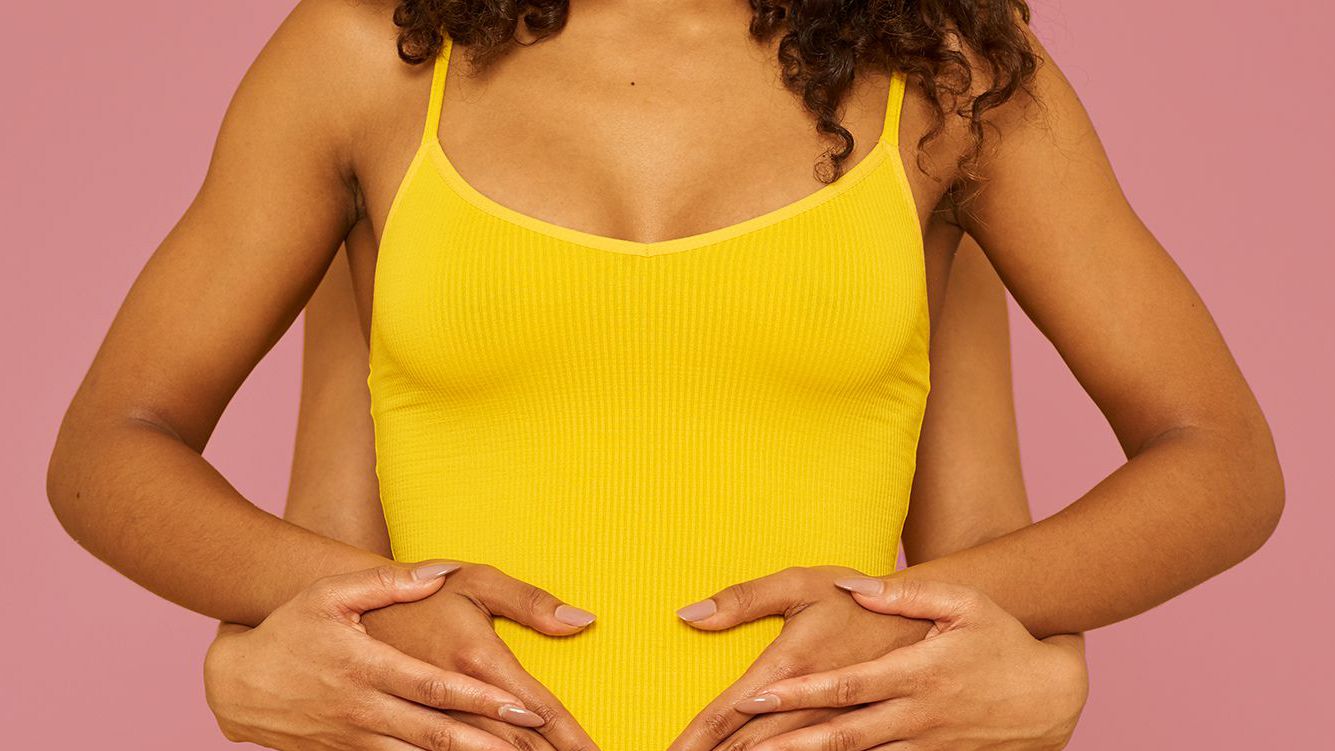
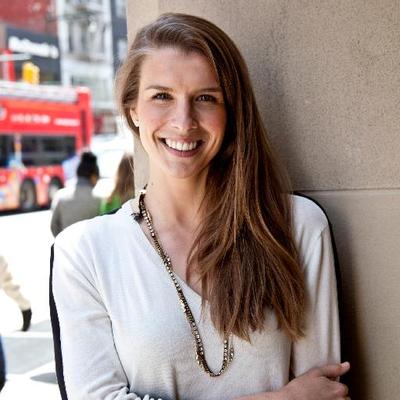

Surrogacy has long been a complex, mysterious, and, to some, immoral way of having children. But that seems to be changing. While it remains illegal in most of Western Europe and is still banned in four U.S. states, the process is becoming increasingly mainstream and accepted. Celebrities—including Neil Patrick Harris and Kim Kardashian West—frank in their desire to expand their families, have publicly turned to surrogacy and helped lessen the stigma in the process. Now, regular women looking to have babies are more open to it than ever.
In an original survey Marie Claire conducted in partnership with SurveyMonkey, nearly a quarter (23 percent) of Millennial women said that, if they found out they could not conceive naturally, they would consider surrogacy. Just 9 percent of Gen-X women said the same.
To clarify: These women would consider using a surrogate. And, yes, that takes a lot of trust—to put the fate of your family in another woman’s womb. But what about the women willing to be surrogates? Willing to put their body through nine months of hormonal fluctuations and morning sickness and stretch marks and back pain, not to mention the bodily trauma of delivering a baby vaginally or via C-section, both of which take weeks to recover from. Add to that the fact that the United States has the worst maternal mortality rate in the developed world—about 700 women die every year as a result of pregnancy or delivery complications, according to the CDC.
So who are these women? They are women who had very easy pregnancies in their pre-surrogacy life (generally agencies require surrogates to have had at least one child of their own). They are women who are exacting, good at sticking to very specific medical schedules and protocol (surrogates are placed on a strict hormonal treatment regimen to build up the uterine lining in preparation for the transfer of the embryo). They are open-minded, and, above all, generous (while specifics may vary agency to agency, all of the women I spoke with told me they had to go through a mental and physical evaluation and credit check before becoming a surrogate; women with significant amounts of debt are turned away).
Women who become surrogates are women who think, I can, so I will. They are women who, as one told me, “just want to show people that you can love others. It’s not always easy, but it’s important.” Here, five of these women share their stories.
“I Felt a Lot of Pressure Because They'd Had So Much Hardship in the Past.”
Codi Tennant, 26, Kansas City, MO
“My husband and I were in the same youth group in high school. One of our leaders was a surrogate, and I just thought it was super cool. So he knew from a very young age that’s what I wanted to do, and was super supportive of all my crazy whims. He got a lot of jokes from male friends: ‘Your wife’s carrying somebody else’s baby?!’ He didn’t care; his only concern was that we have one of our own first.
Stay In The Know
Get exclusive access to fashion and beauty trends, hot-off-the-press celebrity news, and more.
When our son was about 8 months old, I contacted a surrogacy agency and by the time he was 18 months old we were matched with a couple and I was taking medication to get ready for the transfer.
I had a lot more emotional ups and downs with this pregnancy than my own. I think because I was getting pumped full of hormones. I felt a lot of pressure because my intended parents had so much hardship in the past—they’d been trying for about five years without any luck, or every pregnancy ended in a miscarriage. There’s just a weight of carrying somebody else’s child; that was a bit heavier, I think. By the end of the nine months I was emotionally tapped out.
I was pretty attached to my intended parents; their story just broke my heart, and I could see what a good mom she would be. They were in the delivery room, and she helped me get through my contractions. I could tell she was really uncomfortable with how much pain I was in. She was like, ‘Someone should punch me in the stomach!’ To watch her exclaim his name when they handed him to her—it was one of the most beautiful experiences of my whole life. You could just see this relief.
They just live across the state line in Kansas. We have lunch every four or six months or so. We’re friends on Instagram. Some families, they become like a second family. That’s not really our situation, but I’m okay with that. I didn’t go through this process so I could be part of someone’s family. I just wanted to help them add to theirs.”
“Being a Surrogate Made My Husband See Me in a Different Light.”
Kristina Fabis, 47, Plainfield, IL
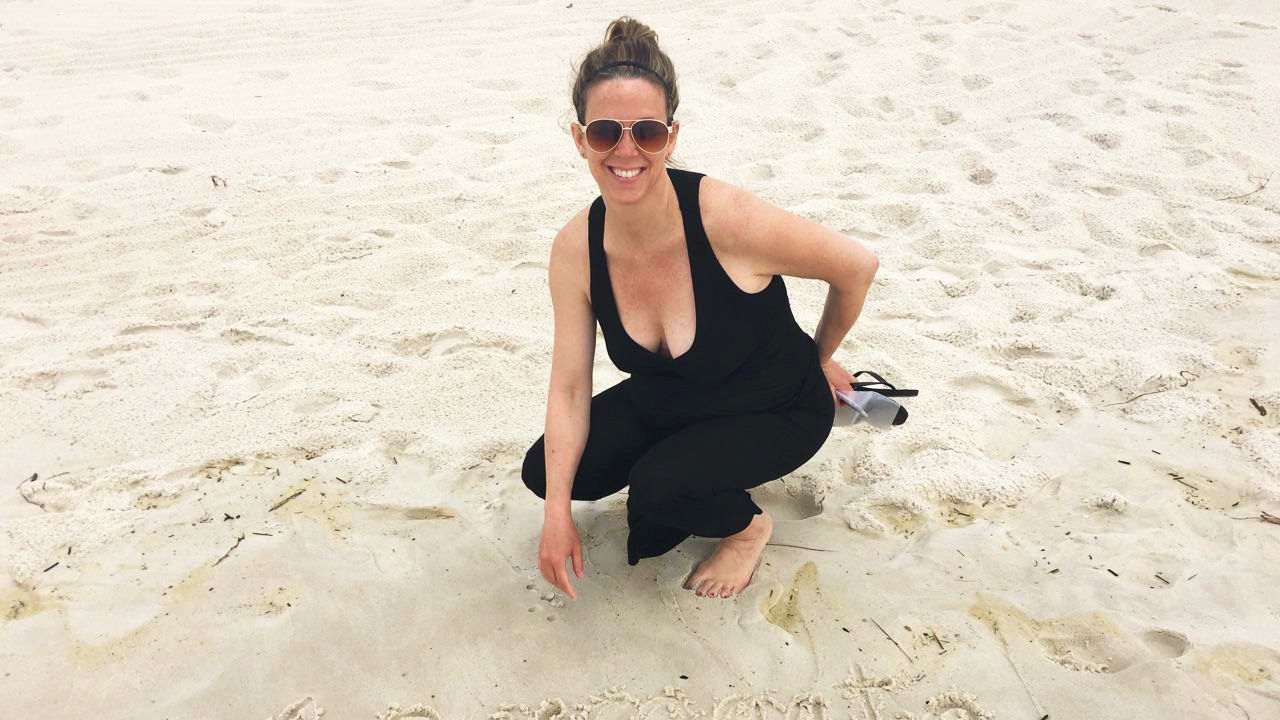
'Kristina has been a surrogate three times and delivered five surro-babies.'
“I’ve always been enthralled with the whole process of reproduction: I'm a labor and delivery nurse. When my younger child was in Kindergarten, I was speaking to one of his classmate’s moms, who was a surrogate. I thought, Well, I’m still young enough to do this. Why not? If I could have a million children, I would.
Maybe it’s naïve, but I knew my health; I was willing to take the risk. I’ve been a surrogate for three different families. The first family—a heterosexual couple from Boulder, CO—I delivered a little boy for them in December 2011, and pretty much that whole year I knew I wanted to do it again.
My husband was very much a part of my first surrogacy. He’s not one to boast about things; he didn’t need to say, ‘I’m proud of you.’ It was very clear that he was impacted by that first delivery. I could tell he saw me in a different light. When I asked to do it again, he said, ‘yes.’ In April 2014, I delivered boy-girl twins for a couple here in Chicago. After that second delivery, I said, ‘I really want to do this again,’ and he again supported it. He just wanted me to do it for two men this time.
Those twins were due October 16, 2016, but that summer I started bleeding. I was put on bedrest at 21 weeks. I, obviously, could not do my job, but I was doing a little work for [my surrogacy agency] ConceiveAbilities on the side, educating other surrogates. Filling my days talking to the surrogates made those long weeks at home not be so unbearable.
I delivered at week 26. The fathers were not there because it was such an urgent situation. I was bummed. Then, a couple days later, seeing them hold these tiny 1- , 2-pound babies against their chest, seeing that bond—it looked right.
Not that there would’ve been anything wrong with me never having done this… It’s not my genetics, so I didn’t leave my legacy or anything, but I feel like by helping those three families, I’ve made my mark on the world. One of those people could be President, and I grew them—who knows?”
“My Wife and I Thought It Would Work Out Great If I Could Also Breastfeed Our Baby.”
Alissandra Mars, 37, Miami, FL
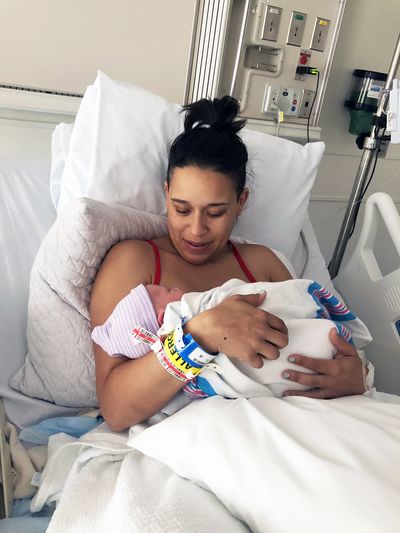
'Alissandra with the baby she delivered for a male couple.'
“It all started because of my son: My wife and I decided to use a sperm donor to have a child. Once we knew that she was pregnant, we were talking about how great it would work out if I was able to help with breastfeeding and being home with the baby. She mentioned surrogacy. I have two kids from a previous marriage, and I’d had easy pregnancies, thankfully. We started researching and I found American Surrogacy. I decided it was something I wanted to do because then I could help out in two ways.
I matched immediately with two guys. I really wanted to do it for them, because we’re two women and without our sperm donor, we wouldn’t have our son; without me and the egg donor, they wouldn’t have their baby. So it felt like a good trade off.
I suffered a miscarriage on our first attempt to transfer. I felt like, Oh my God, I just had the baby in my body and now it’s gone. It was tough. I felt such heartbreak and guilt. I knew that they would need a new set of eggs. A whole new embryo. I knew there was a financial burden.
I had them reduce my monthly compensation and I used my insurance for most of the pregnancy because I didn’t care about the money. I would have done it for nothing. I hope that people don’t think we, as surrogates, do this because we’re broke; someone who is broke, who is in a financial situation, can never be a surrogate.
During the delivery, every time I had a contraction the baby’s heartbeat would drop. I didn’t want to have a C-section. I didn’t even want to have a birth in the hospital because I didn’t know if the nurses were going to be like, ‘Oh, she’s a surrogate,’ and not care as much. But the birth process, it’s something that the intended parents get to decide. I could understand their concern.
In the beginning I was really sad. I didn’t want someone to just cut me open and take a baby out. I felt violated. After the fact, I feel like everything happens for a reason. I don’t know how much lower his heart rate would have gotten—I’m not a doctor. At the end of the day, the baby’s healthy. I don’t regret anything.”
“You’re Not Giving Up a Baby, You’re Just Giving the Baby Back.”
Kristine Ayers, 26, Suffield, CT
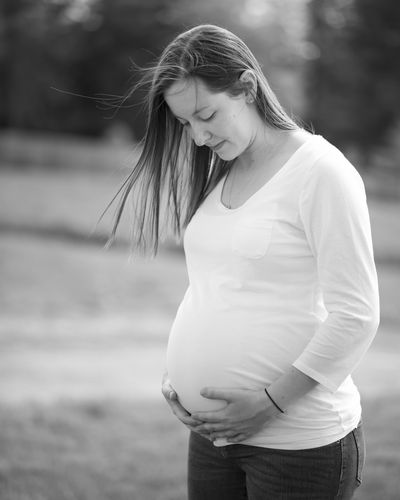
'Kristine while pregnant with her surro-baby.'
“I saw a ConceiveAbilities ad on Facebook. I follow a lot of mom blogs, so I guess it was bound to come up. It just got the wheels turning in my head.
At first, my boyfriend wasn’t really into it. He thought this was going to put me in harm. He didn’t want the outcome to be me not being able to have any more children. I totally understand where he was coming from, but I’m more of an optimist. I am a very healthy person. A lot of agencies are big on you finishing your own family first, but we weren’t ready to have another of our own yet. So I just thought, Let’s kill some time before we have another. I tell people all the time: ‘I’m gonna pop these suckers out before I get too old and can’t do it anymore.’
If I were to list off why I wanted to become a surrogate, I would definitely say compensation is not one of my top priorities. My boyfriend and I, it’s not like we’re made of money, but we’re stable. If we didn’t have this income we’d still be fine. I put most of it in savings, actually, but we are going to Disney World this fall with the parents I carried for.
I am so happy for them. Just overwhelming joy. But going through it, it’s such a weird mix of emotions. You have to have a certain mindset, because you’re not giving a baby up, you’re just giving the baby back. By all means, I was not wanting their child—it’s a healthy disconnect—but it did make me sad. I started to feel very lonely. It gave me baby fever.
The same parents want me to do another journey for them. I definitely want to do that. As much as your body changes, I actually got a lot of good self-esteem because of it. I love gifting people with things, and obviously, helping someone create a family is the ultimate gift.”
“I Really Enjoy It. I Love Being Able to Bless Somebody Else.”
Nichole Vaughan, 33, Fort Walton Beach, FL
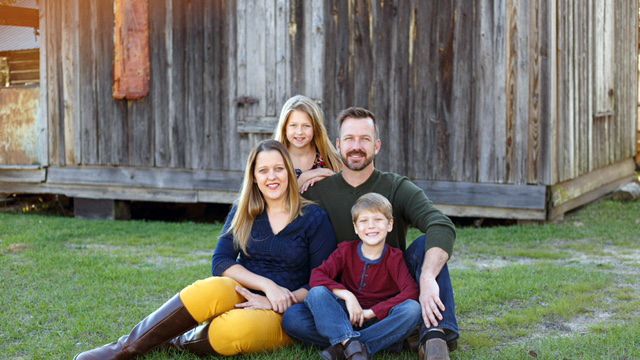
'Nichole with her husband and their two children.'
“I have a sister who’s 11 years younger than I am, who has a heart condition, and has been advised not to carry for herself. I’ve always wanted to be a surrogate for her. Since she’s not quite settled down, I decided to be a surrogate for someone else first, learn to separate myself. Make sure my body could do it.
My husband was a little hesitant at first because he was concerned I would miss the child. You have to know going in that you are not going to bring that baby home with you. You have to be okay with that going into the process. If you’re not, I think you could have post-partum depression very easily. Knowing for years that I wanted to do this, honestly, I was very excited to hand that baby over and see the dad hold him for the first time.
I absolutely fell in love with my intended parent—a single gay man, who used an egg donor and his sperm. We’ve gained an extended family. The first time the gentleman came up and met my kids, who were 9 and 4 at the time, he told them, ‘I’m going to be your cousin in Miami.’ That’s how my kids refer to him. They’re like, ‘I have a cousin in Miami.’
I wouldn’t do this if you don’t have a very supportive group of friends and family. If they’re not there in the beginning, then it’ll be a very difficult road. We had to travel [to Miami for the transfer] so I needed my children watched. My doctor required me to stay flat for 72 hours afterwards, so you have to account for that as well. Some people stay in a hotel, but fortunately, that’s where my intended father lives, so we stayed with him. It was a good way to bond.
I’m very excited to do this again for my sister. I may even do it again for somebody else; I’m tossing that around. I really enjoy it. I love being able to bless somebody else.”

Danielle McNally is a National Magazine Award–winning journalist. She is the executive editor of Marie Claire, overseeing features across every topic of importance to the MC reader: beauty, fashion, politics, culture, career, women's health, and more. She has previously written for Cosmopolitan, DETAILS, SHAPE, and Food Network Magazine.
-
 What to Know About the Cast of 'Resident Playbook,' Which Is Sure to Be Your Next Medical Drama Obsession
What to Know About the Cast of 'Resident Playbook,' Which Is Sure to Be Your Next Medical Drama ObsessionThe spinoff of the hit K-drama 'Hospital Playlist' features several young actors as first-year OB-GYN residents.
By Quinci LeGardye
-
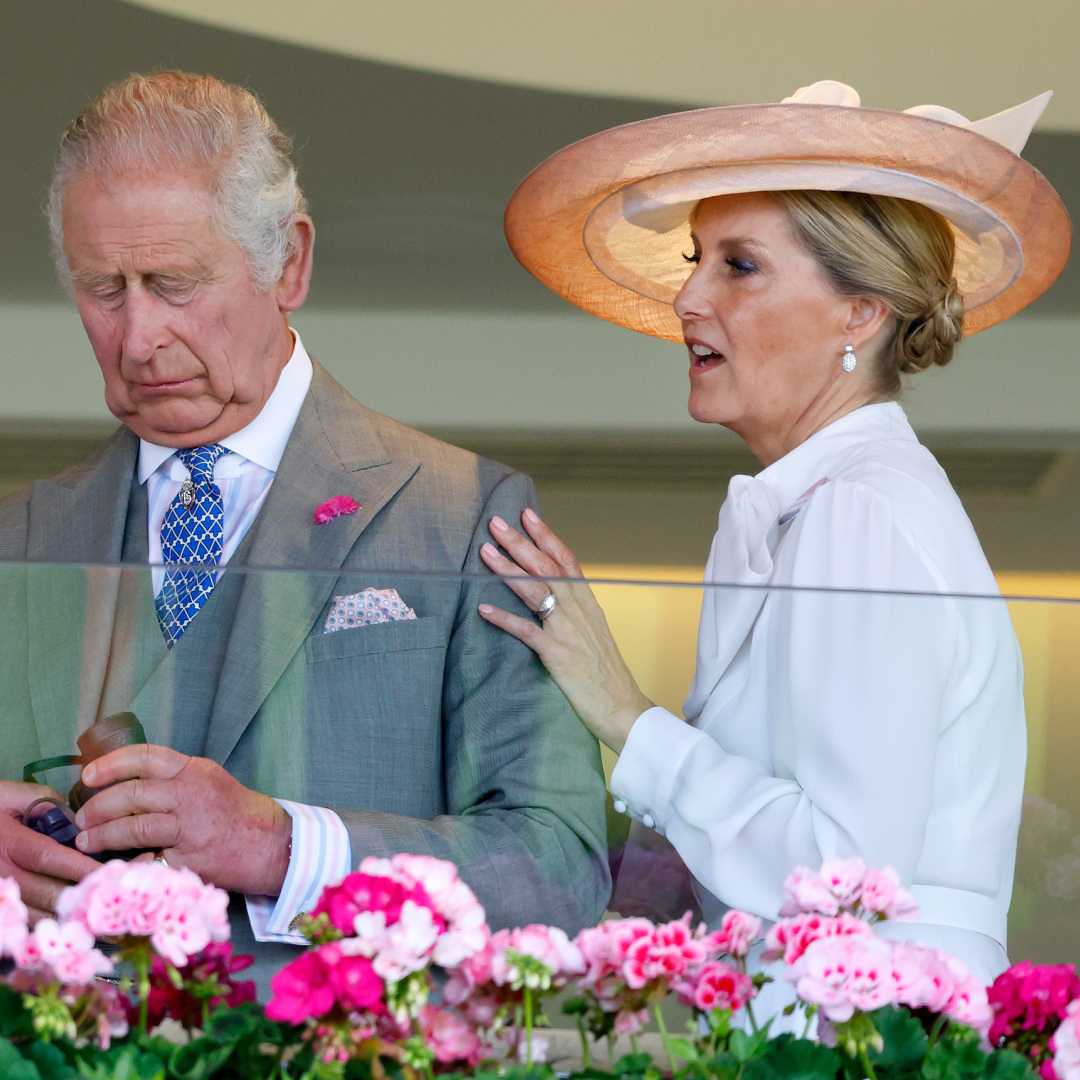 Duchess Sophie Stepped Up to Represent King Charles at Event Amid Calls for King Charles to "Slow Down"
Duchess Sophie Stepped Up to Represent King Charles at Event Amid Calls for King Charles to "Slow Down"The Duchess of Edinburgh filled in for The King at the Royal Military Academy Sandhurst.
By Kristin Contino
-
 See the Top-Scoring WNBA Draft Looks
See the Top-Scoring WNBA Draft LooksThis year's rookie class came to win.
By Halie LeSavage
-
 I'm an Egg Donor. Why Was It So Difficult for Me to Tell People That?
I'm an Egg Donor. Why Was It So Difficult for Me to Tell People That?Much like abortion, surrogacy, and IVF, becoming an egg donor was a reproductive choice that felt unfit for society’s standards of womanhood.
By Lauryn Chamberlain
-
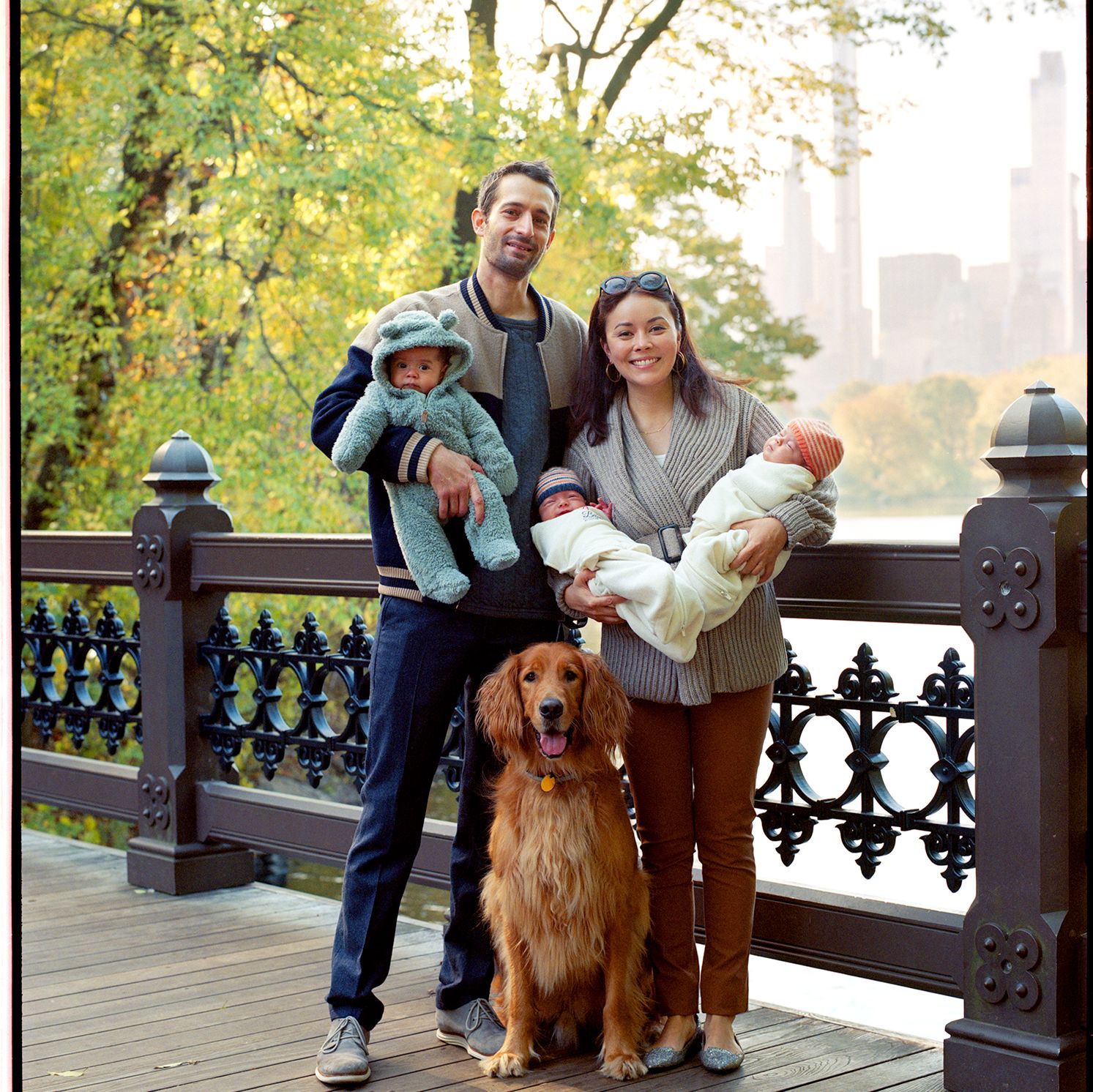 After Years of Fertility Struggles I Had a Baby—and Then Twins 7 Weeks Later
After Years of Fertility Struggles I Had a Baby—and Then Twins 7 Weeks LaterM.M.LaFleur founder and CEO Sarah LaFleur shares her long, difficult, and surprising journey to parenthood.
By Sally Holmes
-
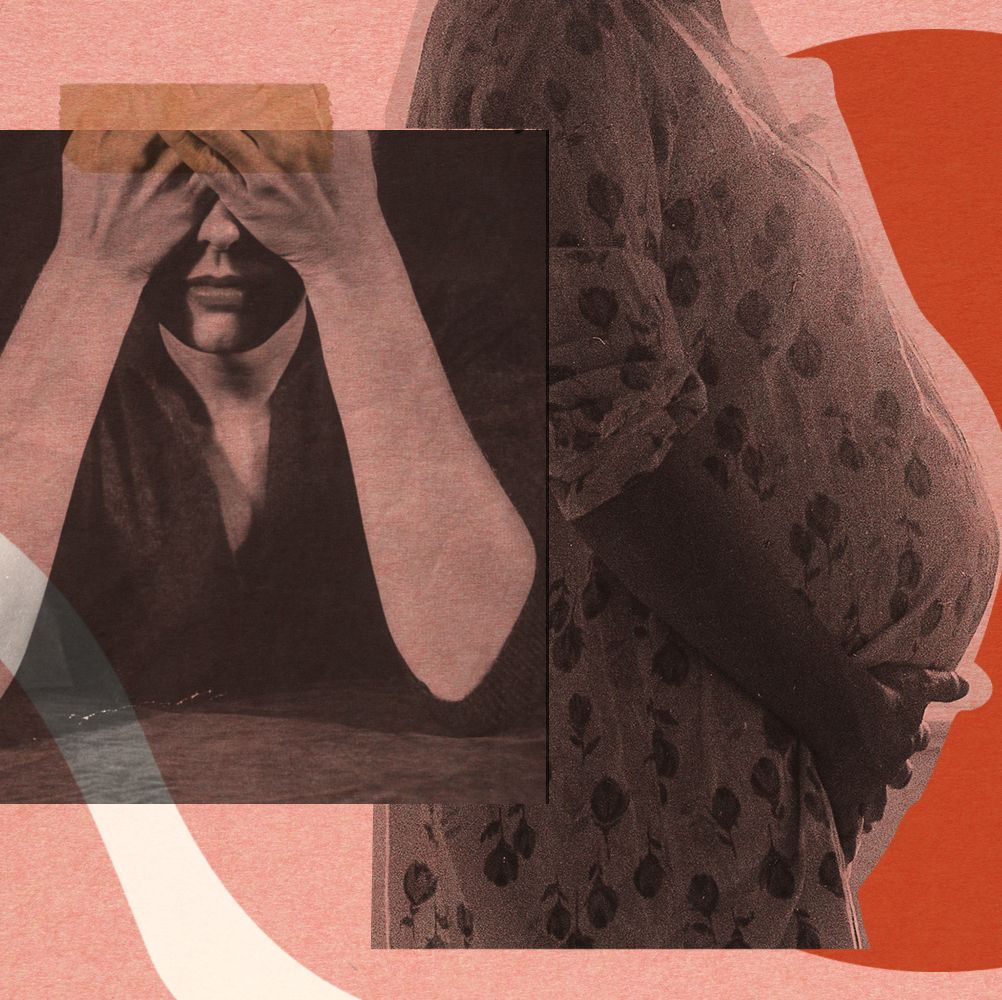 Friendship, Infertility & Moving Forward
Friendship, Infertility & Moving ForwardThere’s no rulebook for navigating your pregnancy while your best friend struggles to conceive. I learned that the hard way.
By Victoria Lamson
-
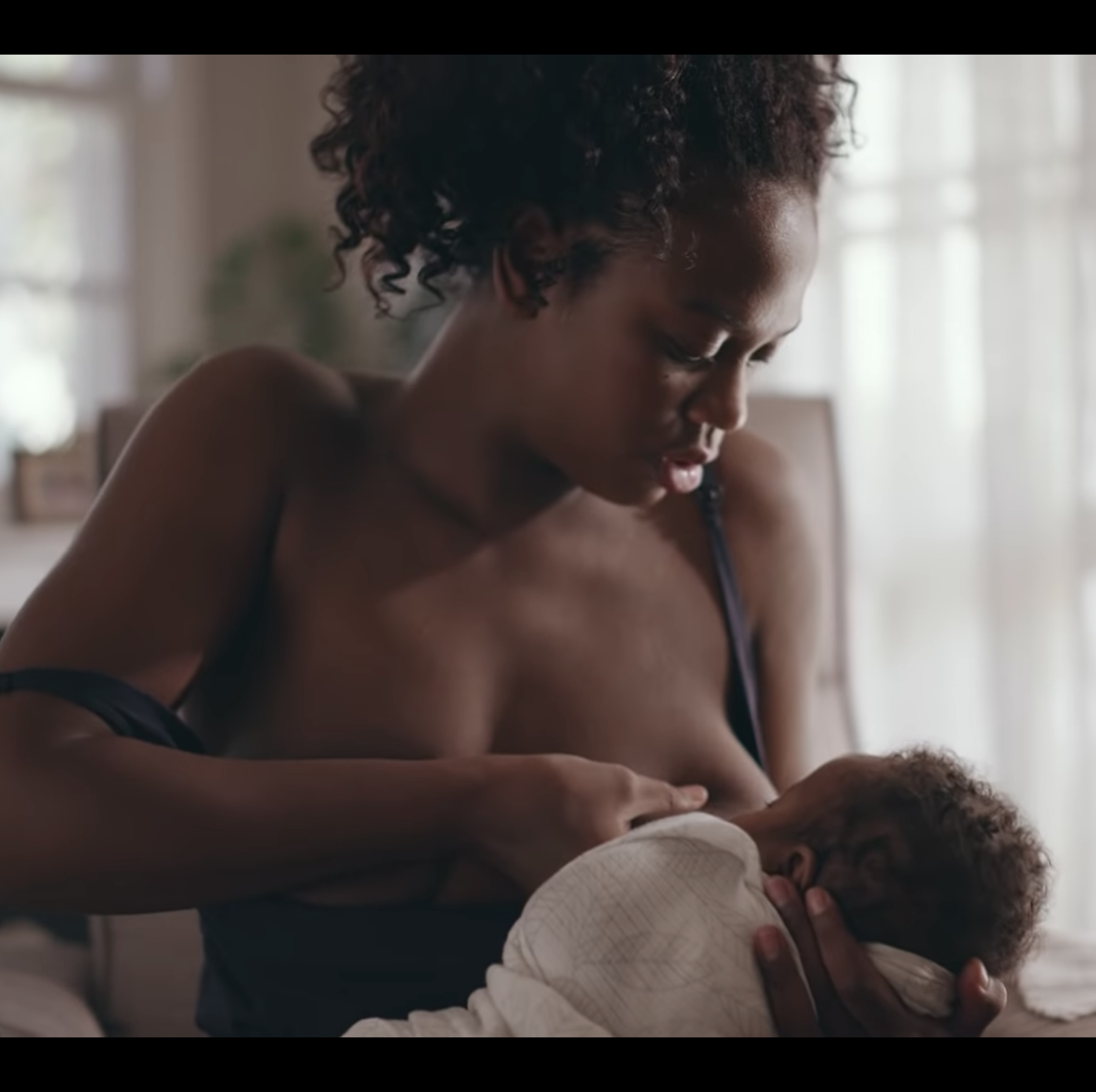 Don't Miss Frida's Realistic Breastfeeding Ad That Aired at the Golden Globes
Don't Miss Frida's Realistic Breastfeeding Ad That Aired at the Golden GlobesThe commercial accurately depicts the struggles of breastfeeding.
By Zoe Guy
-
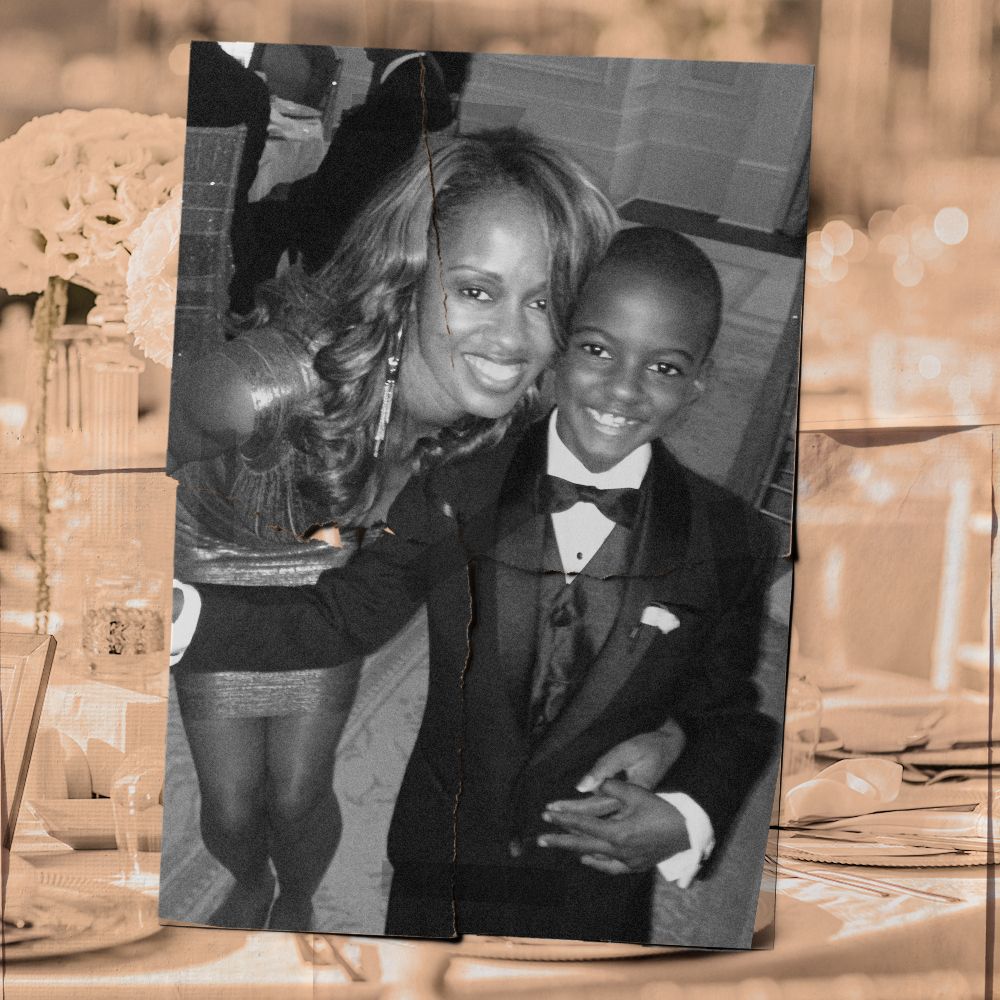 On Being a Black Woman, Mother, & Breast Cancer Survivor
On Being a Black Woman, Mother, & Breast Cancer SurvivorKai McGee's intersecting identities have shaped her breast cancer journey—and influence the decisions she's making now about her future.
By Kai McGee
-
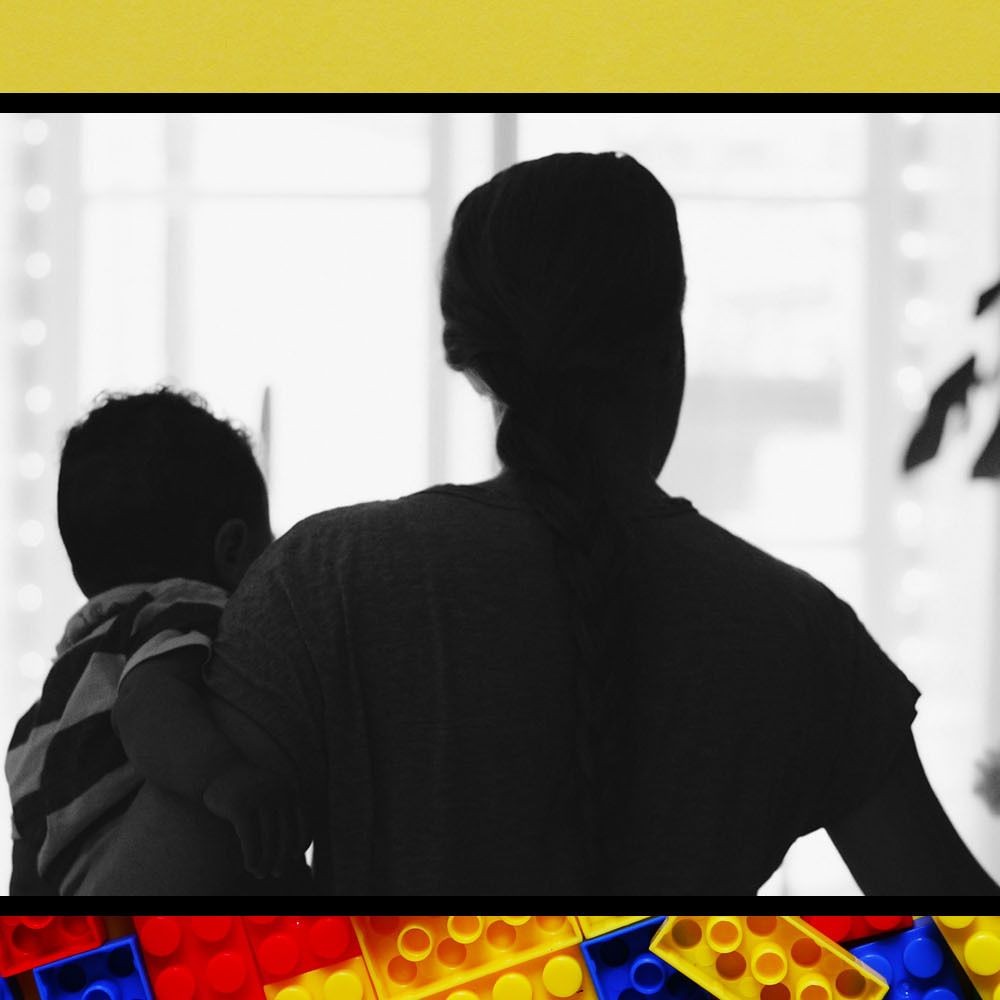 The Pandemic Has Made Me Reconsider Becoming a Single Mom
The Pandemic Has Made Me Reconsider Becoming a Single MomI thought I was ready for the struggles of parenting alone, but COVID-19 put everything in perspective.
By Lynda-Marie Taurasi
-
 What If Fertility Didn't Have a Shelf Life?
What If Fertility Didn't Have a Shelf Life?Nicole Shanahan and Sergey Brin’s struggle to start a family launched a new era in scientific research. The goal: End menopause.
By Bonnie Rochman
-
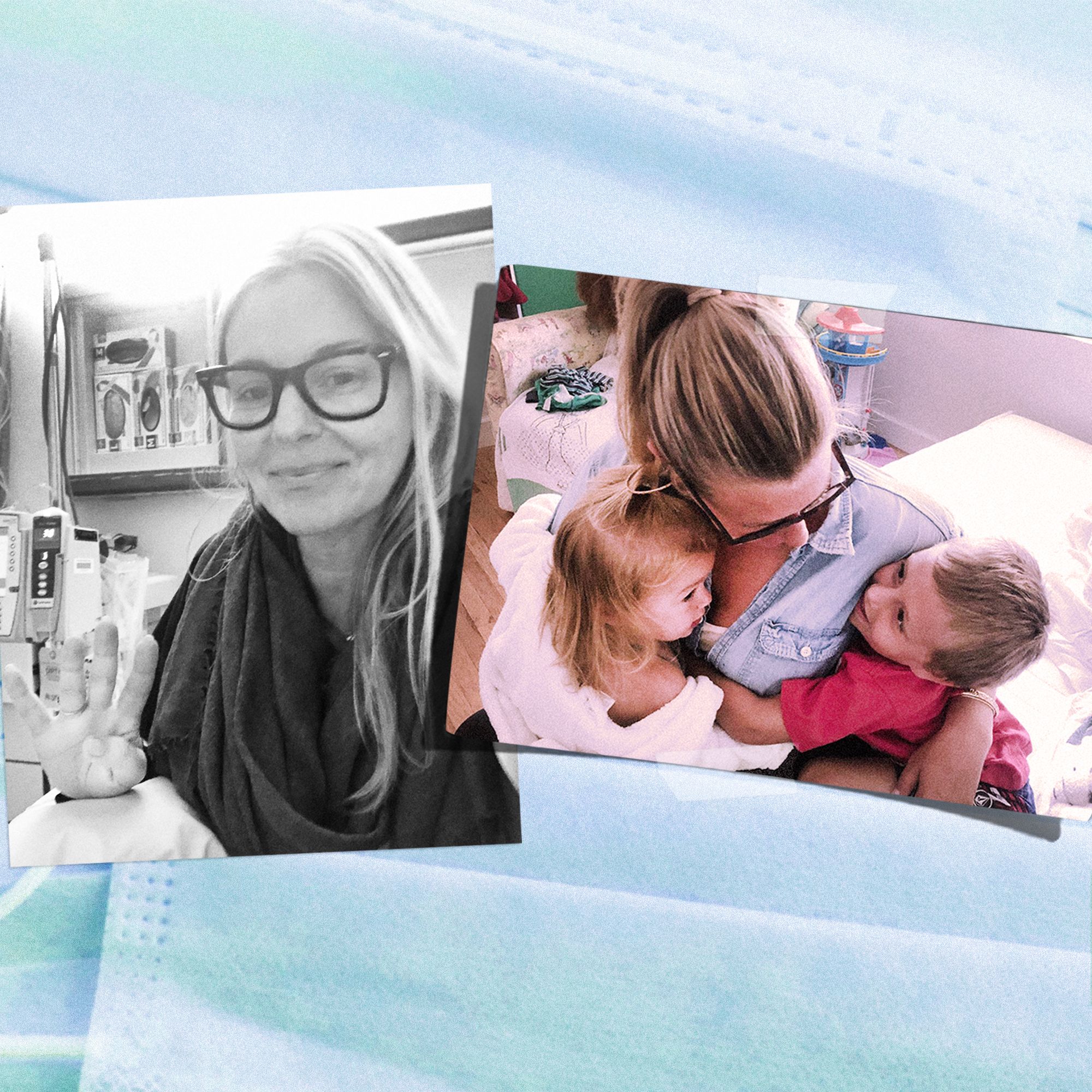 What It's Like to Undergo Chemotherapy During COVID-19
What It's Like to Undergo Chemotherapy During COVID-19Michelle Hynek, 46, was diagnosed with stage four colorectal cancer seven months ago. For her, isolation looks a lot different.
By Rachel Epstein